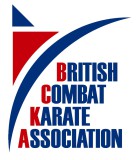
Is your martial art really preparing you for real world violence?
You've tried to defuse the situation, or escape, but violence looks inevitable and you have to defend yourself. You've been training in modern karate for many years... but is that training going to work now? The more similar your training is to the situation you're now facing, the more chance it has of working. Let's breakdown typical modern martial arts training and compare it with the reality of real world violence...
| Element | In the real world | In a modern martial arts environment |
| Environment |
Often outside, likely to be dark or low lighting.
Surfaces will be hard (pavement, road, walls, etc), and uncertain (obstacles, potholes, broken bottles, wet).
The environment is dynamic: moving objects, people and / or vehicles.
Variable area: Encounter can be contained within a very large area or very small area (or anything in between) – from a pub doorway to a dark alley to a wide-open car park.
|
Nearly always inside and well lit
Soft or sprung surfaces with no obstacles
Static environment
Fixed area usually with space to move around freely |
| Weapons |
Weapons or weapons of opportunity are always a potential factor (glasses, bottles, pool cue)
|
No weapons or soft and safe training weapons |
| Enemy | Drunk or drugged, probably untrained, rationality may be impaired, possibly impaired morals, may have a long history of violence | Sober, trained in the same way as us, rational, operating within the rules and standards of the dojo |
| Additional enemies | Anything from none to effectively unlimited - people can be kicked to death by a large crowd of bystanders | Usually none except in multi-person drills |
| Legal isues | Multiple issues to consider particularly ensuring that the response to violence / threat of violence is proportionate and seen to be so. | None assuming normal etiquette and rules are followed |
| Medical response | Based on NHS guidelines for an emergency ambulance, you have a minimum of eight minutes to wait from the point that someone calls for help. It is likely to be much longer and there's a fair chance, if a weapon is involved, that you'll be dead by then | Not required (a strike from a soft training weapon does not need an ambulance). If required, basic first aid normally immediately available. Higher chance that any injury is not critical and can survive waiting for assistance to arrive. |
| Exit strategy | Cannot be guaranteed. While situations are not always "fight or die" this can be the reality, and escape may not be possible | Not required except a simple "tap out" |
| Available help | Uncertain or absent. Bystanders rarely help, and the police are likely to be a long time arriving | Immediately available in the unlikely event that sparring gets out of hand, plus those intervening are likely to competent to do as they are also trained martial artists |
| Other victims | You might need to protect friends or family | None |
| Surprise | Potentially complete surprise (e.g., a blow from behind) | None other than very tactical such as the use of an unexpected technique |
| Readiness | Likely to be completely unprepared, cold muscles. | Almost completely ready - warmed up, stretched and "psyched up" |
| Physiological reaction | Very high stress levels even in the best trained. Impacted by hormonal rush (tunnel vision, loss of fine motor skills, etc.) You may be drunk or otherwise unready to fight | Potenitally high stress but of a different order. |
| Pattern of events | Random, unexpected, novel | Often very familiar as sparring plays out the same way every time |
| Number of strikes | From one to a large flurry possibly at unusual angles or distances. Certain attacks are very common (push to the chest followed by haymaker) | Often a familiar and slow "jab, cross, hook, reset" pattern |
| Body target | Anything goes | Many areas off limits (groin, eyes, throat) and will only be struck by accident. |
| Power of strike | Usually hard, although rarely as strong as a trained martial artist can hit | Usually softer and cushioned by protective gear |
Ask yourself, do you really think your martial art is going to be useful in self-defence given the number of differences it has from real world violence?
